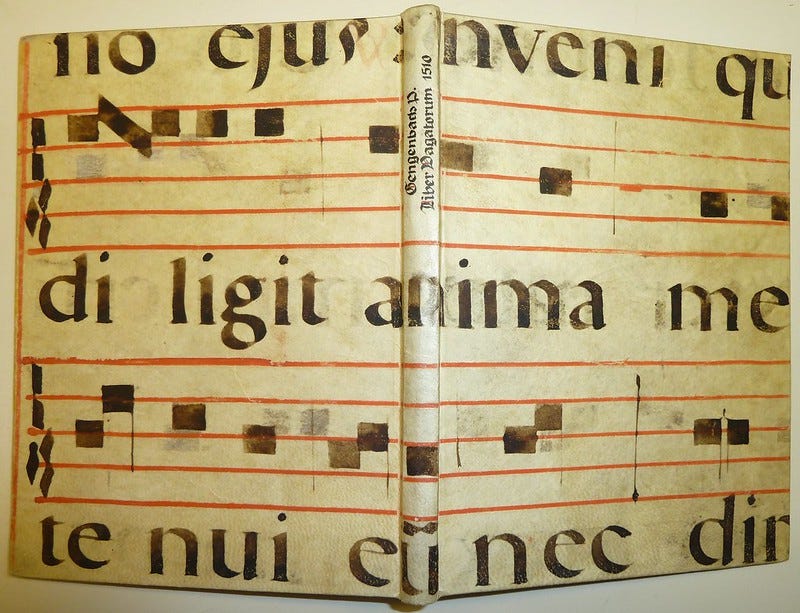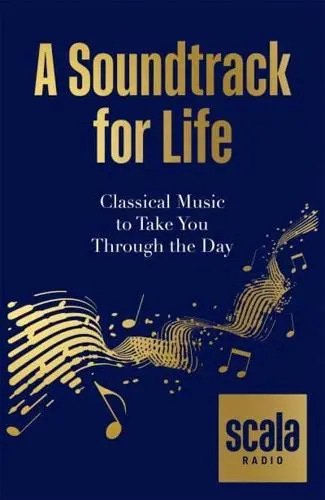Before I started writing books I always thought that when authors said the most common question they are asked is ‘Where do you get your ideas from?’ they were just parroting what others had said before them. But the last 15 years have taught me the truth of the answer (in my case, only marginally ahead of ‘Do you really think there’s a market for a book about that?’).
There are two main places I get my ideas from. Mostly it’s me, but reasonably often it’s other people. Haynes approached me to do its Shed Manual, the British Library did the same for How To Give Your Child A Lifelong Love of Reading, the National Trust ditto for 100 Words for Rain, and ditto ditto the Imperial War Museum for my forthcoming book about tea in WWII, While There is Tea There is Hope.
Why they approach me is perhaps marginally more interesting. So, back in 2021, Scala Radio (now operating in a revamped way as Magic Classical) published my A Soundtrack for Life: Classical Music To Take You Through The Day (though for various reasons which I’ll go into another time my name is notably absent from the front cover and title page inside). Written during the 2020 and 2021 covid lockdowns, it was a real pleasure to write, a kind of guide to what to listen to at various points during the day and during various activities, mostly classical music, but also including classical-ish things from film, television, and video game soundtracks in line with Scala’s mission of introducing new listeners to classical music in a kind of Classic FM or Radio 2 Friday Night is Music Night scenario. It has A Lark Ascending meets Waltz from Murder on the Orient Express meets Finding the Pattern from Everybody’s Gone To The Rapture vibe.
I love music but I’m not a classical music journalist/author so why did they ask me? Initally it was because at that time I used to tweet out what I was listening to on my record player every morning while I was working, a kind of soundtrack to life if you will. This was a mix of fairly middle of the road classical stuff (usual suspects such as Prokofiev, Vaughan Williams, and Debussy), plus more churchy things like Herbert Howells or Thomas Tallis, and a few random odds and ends including Steve Reich, The Unthanks, and Morten Lauridsen. By chance, the publisher followed me on Twitter and so when they were casting about for someone to write the book, they came to me as a genuine enthusiast and with a decent track record of books in the back catalogue. Which all goes to show that more know Tom Fool than Tom Fool knows.
There was a whole section in the Activities chapter on Books & Reading and if you don’t own a copy (scarcely believable, but there we are), here is the rundown of what I included if you’re casting around for something nice to listen to today. For one reason or another, they are all at the interface of books and music.
Absalon Fili Mi (c 1500) by Josquin des Prez (c 1450 –1521)
In The Time of our Singing (2003) by Richard Powers the musical family centrestage play a musical improvisation game during which their nine-year-old child sings a perfect version of this Renaissance masterpiece, a lament by King David about the death of his son Absalom as recounted in the book of Samuel in the Bible.
Chapters from The Wife soundtrack (2017) by Jocelyn Pook (1960 - )
Pook’s take on the story of Joseph (Jonathan Pryce) and Joan Castleman (Glenn Close) who have had a long and successful marriage, so successful that novelist Joseph is about to be awarded the Nobel prize in literature in the film The Wife.
Gypsy Airs (1878) by Pablo de Sarasate (1844 –1908)
In the 1891 Arthur Conan Doyle short story The Red-Headed League, a man with the appropriate coloured hair asks the famous detective if he can sort out a mystery related to some strange work he has recently been paid to do. To help him think things through Holmes suggests to Watson that they head to St James’s Hall on Regent Street and Piccadilly. Holmes is attracted by a concert given by Spanish violinist Pablo de Sarasate, a celebrated performer of the day. This is his most famous piece, ‘Zigeunerweisen’ or in English ‘Gypsy Airs’.
Main theme from His Dark Materials (2019) by Lorne Balfe (1976 - )
A 60 second piece to introduce viewers into Philip Pullman’s story of love, religion, and parallel universes. Balfe’s work on the second series was voted by Scala Radio listeners their favourite television music of 2020, fact fans.
Main titles from The Private Life of Sherlock Holmes soundtrack (1970) by Miklós Rózsa (1907 –1995)
A personal favourite from Billy Wilder’s slightly tongue-in-cheek film starring Robert Stephens as the consulting detective and Christopher Lee as his brother Mycroft.
Ninth Symphony, 2nd Movement (1824) by Ludwig van Beethoven (1770 –1827)
Novelist Anthony Burgess wanted to become a composer as a young man and Beethoven’s ninth was centrestage in his disturbingly dystopian novel A Clockwork Orange, even more so when it was filmed by Stanley Kubrick in 1971.
Once Upon A Time/Storybook Love from The Princess Bride (1987) by Mark Knopfler (1949 - ) and Willy DeVille (1950 – 2009)
Mark Knopfler on top form on a break from duties with Dire Straits, earning a nomination for Best Original Song at the 1988 Academy Awards along the way.
Overture from A Midsummer Night’s Dream (1826) by Felix Mendelssohn (1809 – 1847)
Welcome to a forest outside Athens for William Shakespeare’s magical comedy of love and identity.
Overture from Candide (1956) by Leonard Bernstein (1918 –1990)
This seems never to be off the airwaves nowadays, the opening of Bernstein’s take on Candide, Voltaire’s classic story of optimism and coming of age.
Pelagia’s Song from Captain Corelli’s Mandolin soundtrack (2001) by Stephen Warbeck (1953 - )
From the 2001 film version of Louis de Louis de Bernières’s 1994 phenomenal bestseller about a WWII love triangle story set in Cepahalonia with plenty of mandolin action (played in the film by actor Nicolas Cage himself, but on the soundtrack by professional mandolin player Giovanni Parricelli).
Popular Song from Façade (1923), words by Dame Edith Sitwell (1887 –1964), music by Sir William Walton (1902 – 1983)
Another personal must-have, a spectacular fusion of experimental words and music from Sitwell’s poetry collection Façade.
Promises to Keep from Private Peaceful soundtrack (2012) by Rachel Portman (1960- )
From the score of the film version of Michael Morpugo’s war novel Private Peaceful.
Tale of the Kalandar Prince (1888) by Nikolai Rimsky-Korsakov (1844 – 1908)
Russian composer Nikolai Rimsky-Korsakov's Scheherazade suite is based on The Arabian Nights/One Thousand and One Nights tales. This is the second ‘story’ of the piece.
The Godfather Waltz (1972) by Nino Rota (1911 – 1979)
From the opening bars of The Godfather film, although it also crops up in novelist Kazuo Ishiguro’s interlocking short story collection from 2009 Nocturnes.
The Scholar from Wolf Hall soundtrack (2015) by Debbie Wiseman (1963 - )
The television score mostly uses instruments that were available in the Tudor period. In this section we hear a trio of solos from the recorder, the harpsichord, and the vielle, a larger and more oval version of the violin.
Themes for Narnia (1981) by Marisa Robles (1937 - )
Background musical settings by the Spanish harpist Marisa Robles for The Chronicles of Narnia books for children by CS Lewis, quite a different approach to the route Harry Gregson-Williams took for the 2005 film The Lion, The Witch and The Wardrobe.







I was planning to leave a comment about "Captain Correlli's Mandolin", but I see you already mentioned it.
Really loved that book, but still have never seen the movie!